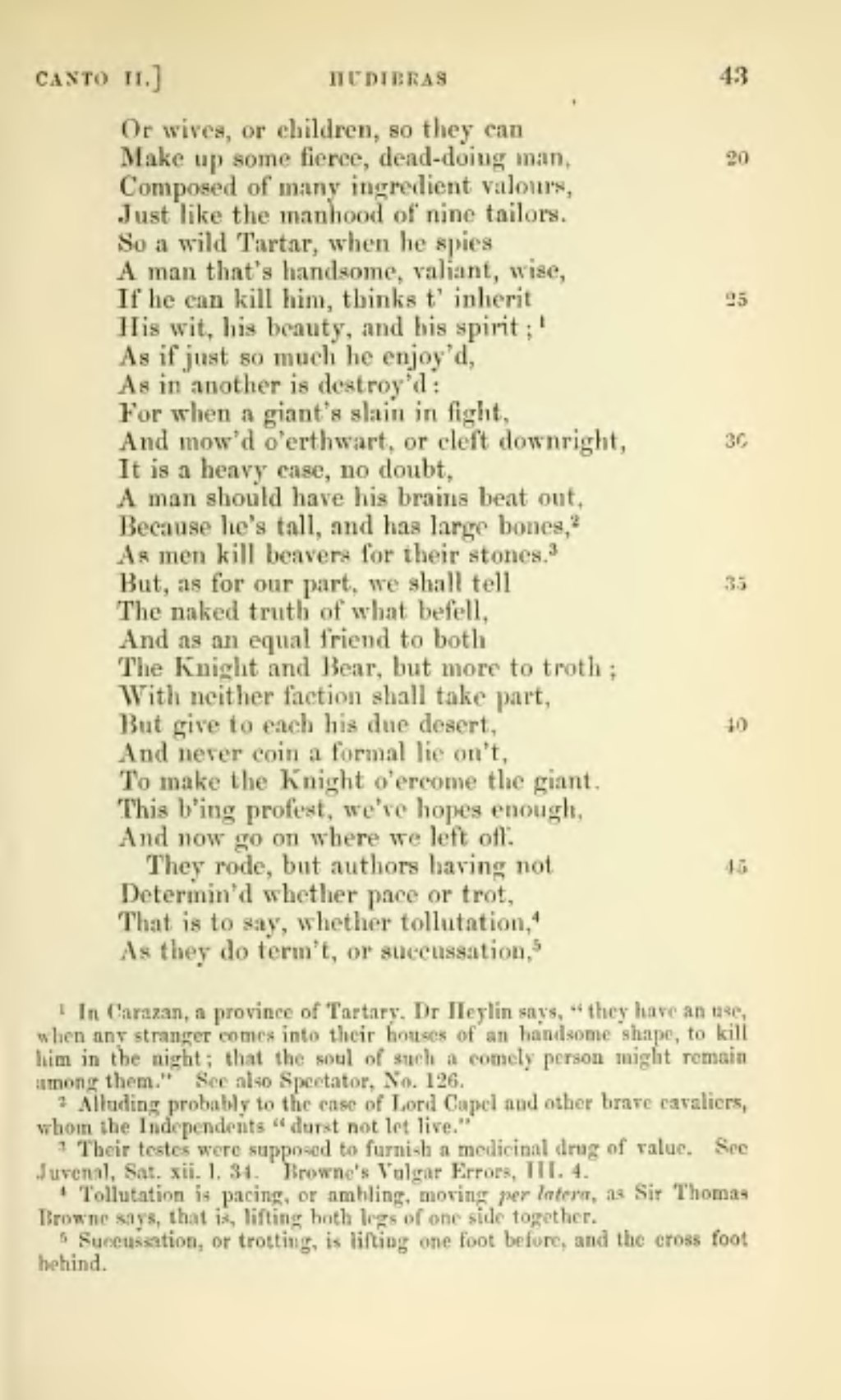Or wives, or children, so they can
Make up some fierce, dead-doing man, 20
Composed of many ingredient valours,
Just like the manhood of nine tailors.
So a wild Tartar, when he spies
A man that's handsome, valiant, wise,
If he can kill him, thinks t' inherit 25
His wit, his beauty, and his spirit;[1]
As if just so much he enjoy'd,
As in another is destroy'd:
For when a giant's slain in fight,
And mow'd o'erthwart, or cleft downright, 30
It is a heavy case, no doubt,
A man should have his brains beat out,
Because he's tall, and has large bones,[2]
As men kill beavers for their stones.[3]
But, as for our part, we shall tell35
The naked truth of what befell.
And as an equal friend to both
The Knight and Bear, but more to troth;
With neither faction shall take part.
But give to each his due desert, 40
And never coin a formal lie on't,
To make the Knight o'ercome the giant.
This b'ing profest, we've hopes enough,
And now go on where we left off.
They rode, but authors having not 45
Determin'd whether pace or trot,
That is to say, whether tollutation,[4]
As they do term't, or succussation,[5]
- ↑ In Carazan, a province of Tartary, Dr Heylin says, "they have an use, when any stranger comes into their houses of an handsome shape, to kill him in the night; that the soul of such a comely person might remain among them." See also Spectator, No. 126.
- ↑ Alluding probably to the case of Lord Capel and other brave cavaliers, whom the Independents "durst not let live."
- ↑ Their testes were supposed to furnish a medicinal drug of value. See Juvenal, Sat. xii. 1. 34. Browne's Vulgar Errors, III. 4.
- ↑ Tollutation is paring, or ambling, moving per latera, as Sir Thomas Browne says, that is, lifting both legs of one side together.
- ↑ Succussation, or trotting, is lifting one foot before, and the cross foot behind.
